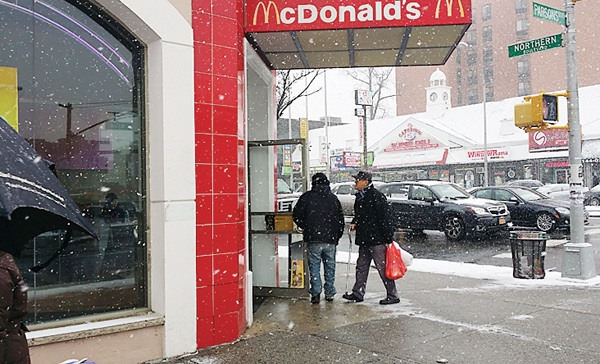The following is a post from Advisory Group member Karen Pennar. Karen is the Co-Director for the CUNY Graduate School of Journalism’s Center for Community and Ethnic Media and the Editor of Voices of NY. She shares this story of elderly Koreans choosing a local fast food restaurant to congregate despite the availability of senior centers. While we may believe that facilities are in place to encourage interaction and wellbeing, the reality may be that’s not the case, and that understanding the cultural overlay may help us better understand what is needed and wanted.
Numerous experts have noted that successful aging requires, among other factors, the maintenance of social bonds. This uncontroversial observation appears to hold across cultures and borders.
Yet the ways in which people of different cultures try to maintain those social networks – and how tolerant or encouraging of these efforts different cultures are – can vary widely, leading to some tensions. Two and a half years ago, when elderly Koreans in the Flushing neighborhood of Queens in New York City began to gather to meet friends and talk over coffee at the local McDonald’s outlet, the manager eventually called the police and asked them to escort the elderly patrons out of the fast-food outlet.
An article in The Korea Times, a local Korean language paper, told the story:
“In spite of the bad treatment and humiliation, the reason why the elderly Koreans keep going to McDonald’s is that they don’t have enough places to rest and talk freely. Some older Korean people are unwilling to go to the senior centers in Flushing since they have a sense of isolation in the centers and feel an invisible barrier to entering the centers. One senior citizen said that it is much better to have a pleasant conversation about the world with friends in a free atmosphere like McDonald’s.”

A year later, the situation had changed, and the same franchise was more welcoming toward Korean seniors – as were other nearby fast food locations. As the follow-up article in The Korea Times noted, however, “it is unfortunate that there is nowhere to rest comfortably except for fast-food restaurants. Asked about places to relax, Korean seniors in Flushing picked only the McDonald’s on Parsons Boulevard, a Burger King across the street and the McDonald’s on Roosevelt Avenue.”
What does it say both about the needs of aging Koreans in New York, and the adaptations they have made in America, that fast-food outlets have become, effectively, senior centers?
Photos via The Korean Times
